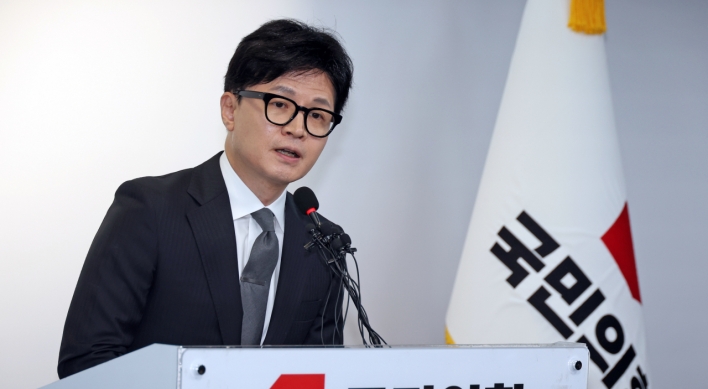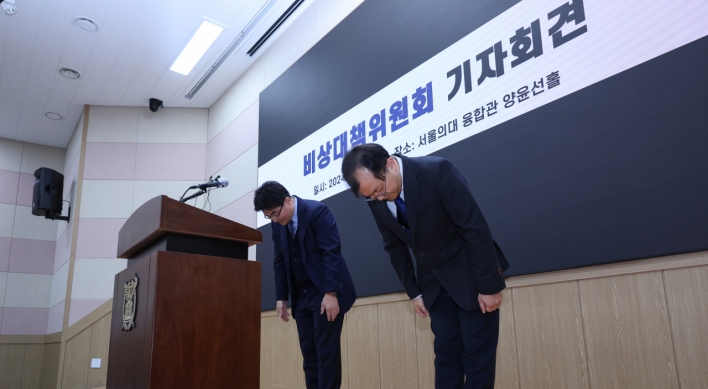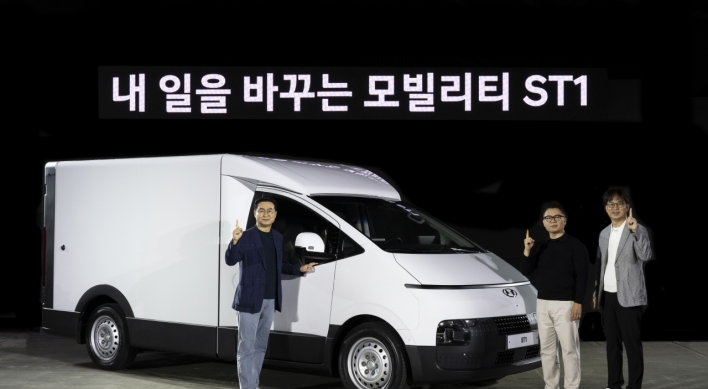
Winter is coming! It’s a famous line often cited from US fantasy series “Game of Thrones.”
Russia was able to defeat Napoleon’s invasion in 1812 and to stop Hitler’s advance in 1941 thanks to the cold weather. Perhaps, Russian President Vladimir Putin might have expected such a weather chance when he decided to invade Ukraine. But, his attempt to block the EU’s intervention by threatening to cut Russia's supply of natural gas to Europe turned out to be a failure mainly due to abnormally warm weather. Ironically, Russia's war in Ukraine offers the world an opportunity to improve energy mix in a way of reducing dependence on fossil fuels by raising the target for renewable energy.
Our planet is like a living creature, getting a serious illness when its temperature rises. In the middle of the COVID-19 crisis, people were self-quarantined in case the body temperature rises by more than 1.5 degrees Celsius. Just like humans, the same is true of Earth. If we set a critical temperature rise of Earth within 1.5 degrees Celsius, using the preindustrial revolution period as the criterion, its own temperature has already risen by up to 1.3 degrees Celsius over the last 50 years. Under this scenario, we are supposed to self-isolate our Earth for eight years from now on.
Let me tell you about an episode illustrating the significance of the climate crisis. In a joint speech to the US Congress in 2018, French President Emmanuel Macron said, “Make our planet great again,” figuratively mocking then-US President Donald Trump, who had decided to withdraw from the Paris Climate Accord. In the speech, Macron also left an unforgettable line, “There is no Planet B,” which has become the symbol of warning about the climate crisis since then.
Back to the reality of the climate crisis, where are we now? As chairman of the Democratic Party of Korea, I proposed the “2030 NDC 40 percent” initiative that aimed at reducing carbon emissions by 40 percent by a given year. Nevertheless, when it comes to carbon emissions, South Korea is the second biggest emitter among the G-20 countries. Specifically, during the 2015-2020 period, Korea’s average CO2 emissions per capita was 3.18 tons, higher than 3.06 tons of China, 2.33 tons of the US and 1.92 tons of Japan.
Furthermore, regarding the generation of renewable energy, the reality is even more serious. As of 2021, the proportion of renewable energy was just 4.7 percent, way less than 28.8 percent of China, 21.8 percent of Japan and 23.6 percent of France. It clearly indicates that South Korea is regarded as the country that emits the most carbon per capita but produces the least renewable energy in the world.
Then, what about the energy mix policy? This involves the “10th Basic Plan for Power Supply and Demand” issued by the Ministry of Trade, Industry and Energy last month. To make a long story short, the government intended to raise the share of nuclear energy lower than that of renewable energy, while keeping coal energy intact. Compared to the targets set by the previous government, the nuclear share rises by 8.9 percent while the share of renewable energy decreases by 8.7 percent. In a real sense, the government appears to view nuclear power as an energy source to replace renewable energy. But such an approach inevitably leads to wrong outcome by sending a wrong signal to the market that it is not worth investing in renewable energy.
The real problem is that the government seeks to fill the shortfall in renewable energy by using both coal and gas power generations as supplementary means.
However, coal and gas cannot work as bridge energies for several reasons.
For instance, gas energy, though it produces less CO2 than coal energy, is the main culprit of the production of methane, which is more harmful than carbon. From an economic perspective, coal-fired power generation is gradually evolving into a systemic risk that restricts the growth of an export-driven economy. The EU’s Carbon Border Adjustment Mechanism, which can be compared with the US’ Inflation Reduction Act, is expected to come into effect in 2026. Even worse, it has been a necessary condition for energy-intensive companies to join the Renewable Energy 100, or RE100. It implies that companies may not secure sustainable growth unless they obtain renewable energy.
In this respect, we worry about a regressive policy mix that replaces renewable energy with nuclear energy without any coal-reduction plan. “NET-Zero 2050” without coal reduction is just a declarative campaign. Until the time comes when nuclear fusion power, called the holy grail of energy, is commercialized, cooperation between nuclear power plants and renewable energy is inevitable.
In the middle of the climate crisis, which is more dangerous than a nuclear one, it is a folly to cut renewable energy without countermeasures to reduce coal energy. We should try to find the way to avoid a “gray rhino,” a metaphor for a highly likely yet ignored threat. If we overlook this predictable danger, we could face catastrophic consequences.
As Macron said, “There is no Planet B.”
Song Young-gil
Song Young-gil is a visiting professor of the ESCP Business school in France and is an executive adviser to the Democratic Party of Korea. He was a former chairman of the Democratic Party. The views expressed here are his own. -- Ed.
-
Articles by Korea Herald


![[Exclusive] Korean military set to ban iPhones over 'security' concerns](http://res.heraldm.com/phpwas/restmb_idxmake.php?idx=644&simg=/content/image/2024/04/23/20240423050599_0.jpg&u=20240423183955)
![[AtoZ into Korean mind] Humor in Korea: Navigating the line between what's funny and not](http://res.heraldm.com/phpwas/restmb_idxmake.php?idx=644&simg=/content/image/2024/04/22/20240422050642_0.jpg&u=)

![[Graphic News] 77% of young Koreans still financially dependent](http://res.heraldm.com/phpwas/restmb_idxmake.php?idx=644&simg=/content/image/2024/04/22/20240422050762_0.gif&u=)




![[Pressure points] Leggings in public: Fashion statement or social faux pas?](http://res.heraldm.com/phpwas/restmb_idxmake.php?idx=644&simg=/content/image/2024/04/23/20240423050669_0.jpg&u=)








